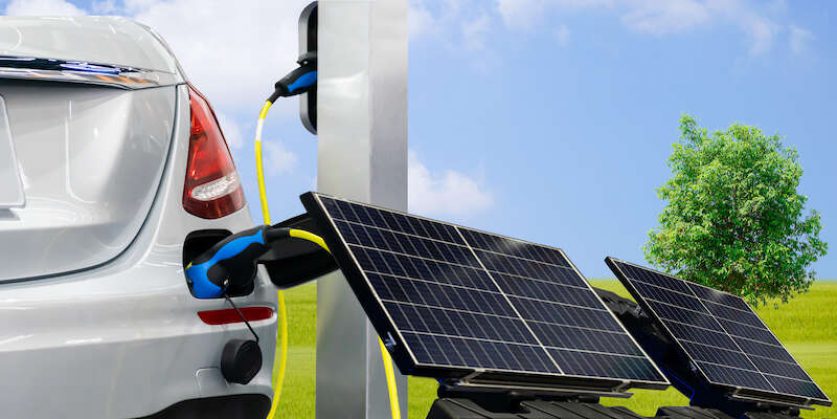
A new energy tariff from Good Energy will offer free charging to electric vehicle (EV) drivers during periods of high wind and solar generation.
The green supplier has already been catering to EV drivers. Last June it became the majority (50.1%) owner of Zap-Map, an app mapping EV charge points, and in January launched a time-of-use energy tariff with cheaper overnight charging.
The new Zap Flash tariff, developed in partnership with Zap-Map, provides an even better service for owners of low-carbon vehicles.
The tariff will include four-hour “flash” windows based on periods when the UK is generating an abundance of wind and solar power. During these periods drivers can charge their electric vehicles at no additional cost, using Good Energy’s 100% renewable electricity.
The flash periods will vary in their day of the week but the times will remain the same. In the summer, between April and September, the flash period will be between 11 am and 3 pm, while in the winter, between October and March, it will be overnight, between 11 pm and 3 am. Drivers will receive 24-hour notice of each flash period.
The Zap Flash tariff will be enabled by smart metered and supporting by smart EV charges an app, which Good Energy is rolling out.
Juliet Davenport, founder and chief executive of Good Energy, said: “Britain generates so much renewable electricity it only makes sense for us all to take advantage of this free resource. The new ‘flash’ tariff will offer people the chance to benefit from free, green power when the wind and sun are strongest.
“Electric vehicle drivers are already doing their bit for the climate – here’s a chance for them to go one step further and support a truly clean energy grid.”
Good Energy provides 100% renewable electricity sourced through power purchase agreements (PPA) with 1600 renewable generators and not “greenwashed” with REGOs.
Good Energy’s offerings are one of a growing number of home energy tariffs pitched at EV drivers, most coming with “free miles” or cheaper electricity overnight.
The UK has committed to banning the sale of petrol and diesel vehicles by 2030. Sales of electric vehicles have been soaring even as the auto market has slumped in response to the pandemic.




